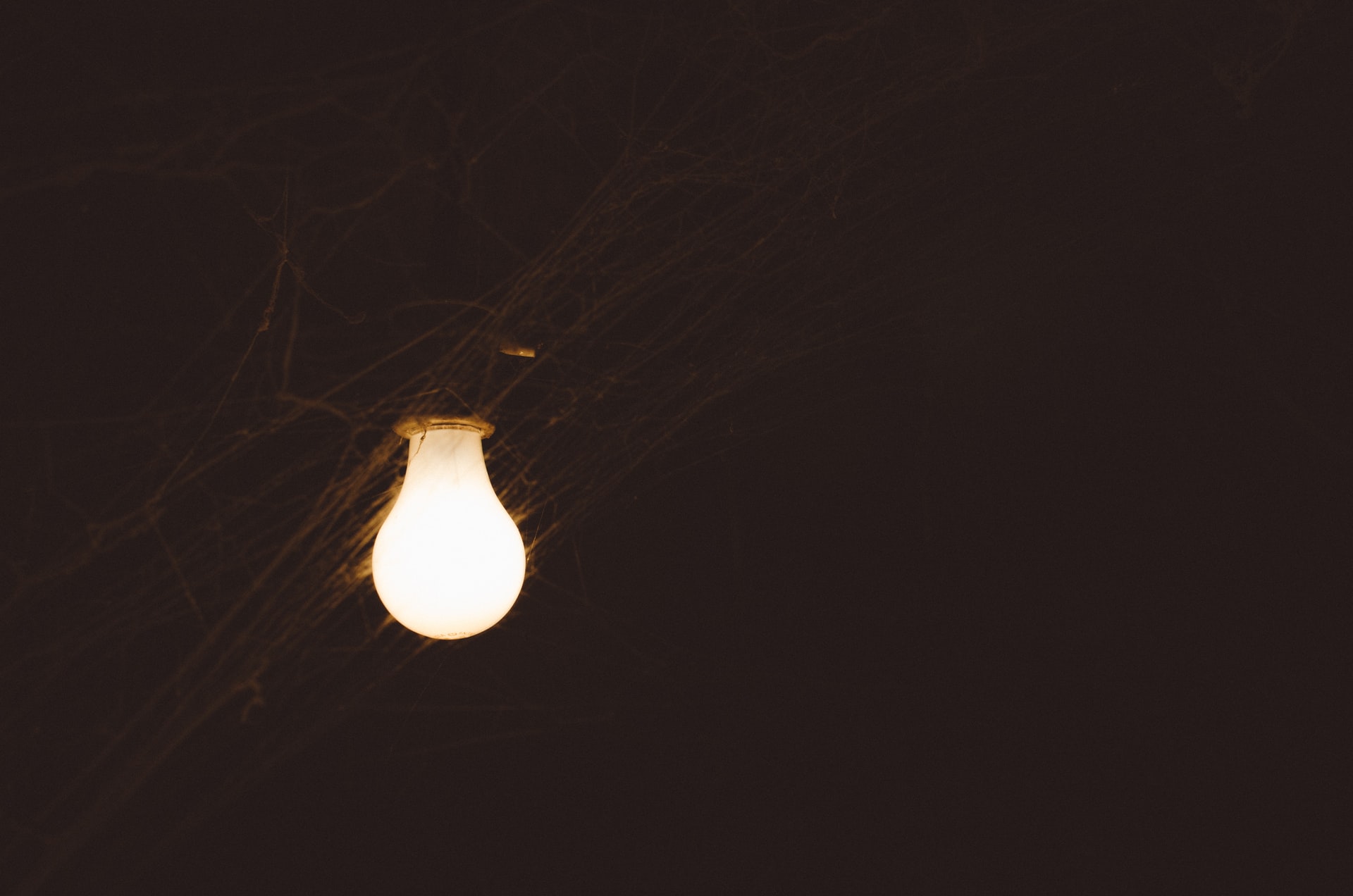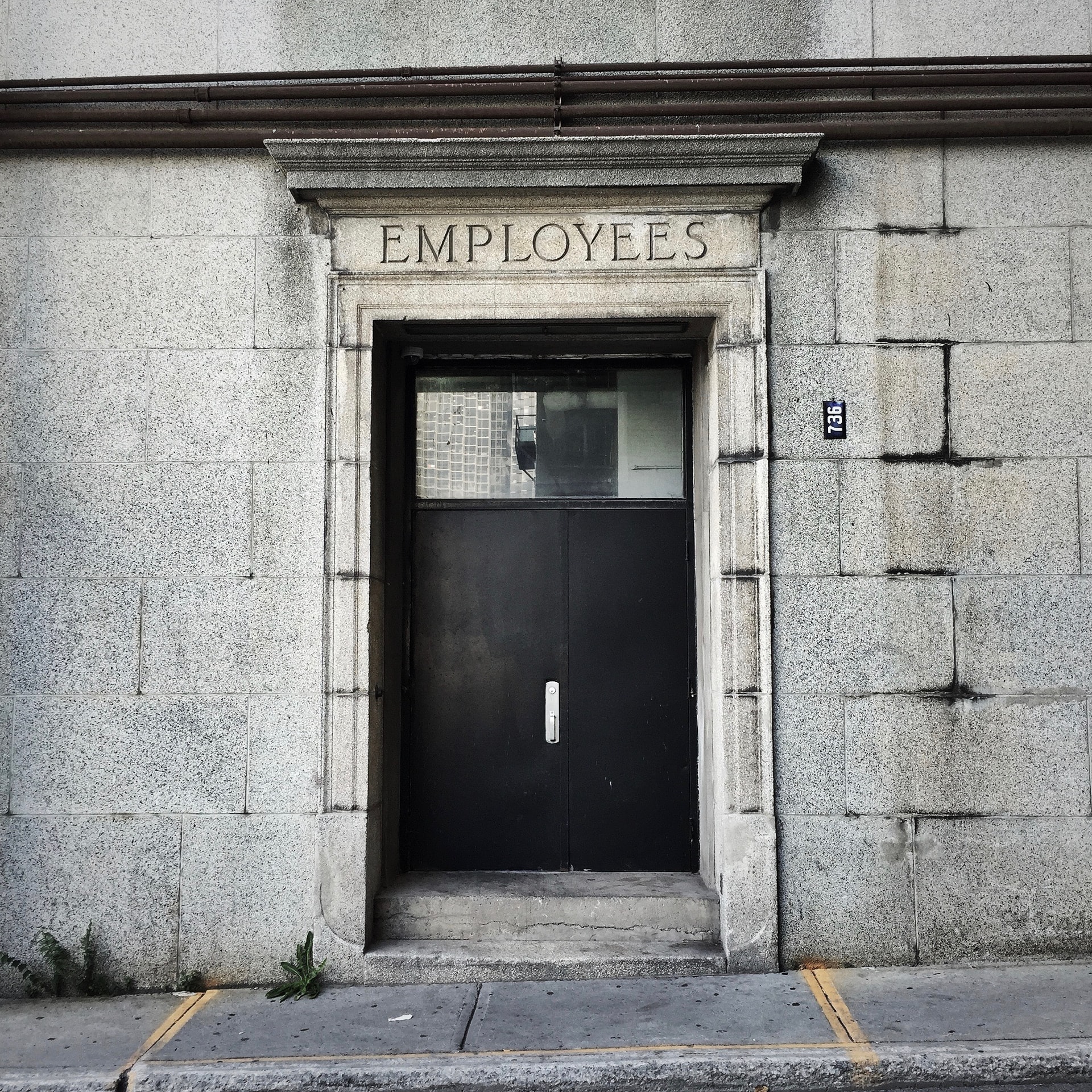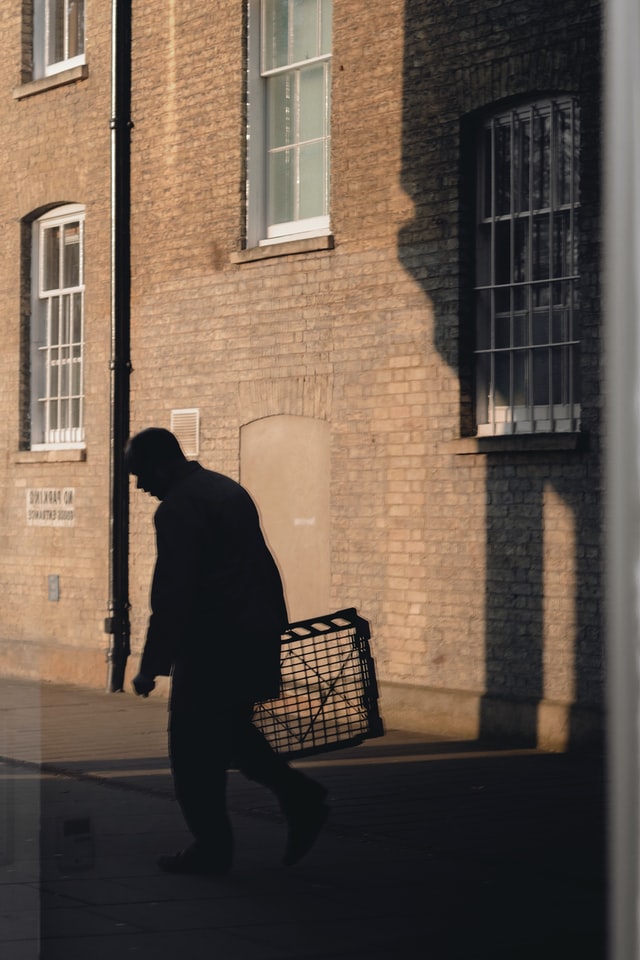“This?” Tim asked, slowing at an intersection.
“Next right.”
He flicked on the blinker and turned, his hands steady on the wheel.
He was sober.
At the end of the stable middle class suburban houses where I’d failed to live a stable middle class suburban life was a steep downhill drive with a few bigger, pricier houses built into the slope. Justin’s house was the nicest, at the bottom of the hill where the road looped back around on itself.
Tim neatly backed into the driveway.
Right before our divorce, my wife called me an ‘opportunistic bottom feeder,’ like one of those fish content to wallow in the shit at the bottom of a lake, lazily waiting for a tasty turd to float past. It was her most literary moment; that, and because I was past the fighting stage and onto the acceptance phase, kept me from arguing the point.
Today’s little venture would have proved her right.
Robbing a client.
But Justin’s abandoned house at the edge of my neighborhood was too good to be true.
The deck I’d- we’d- built in the back of the house wrapped around one of the sides. An ornate herringbone structure that looked modular but was actually custom, each jigsaw piece cut and finished by us, by hand.
Now it needed a power washing. At least.
I’d done a good job.
Justin had invited me and my family for barbecues and I’d felt a sense of satisfaction when one of our other neighbors had leaned his full weight against the railing and there hadn’t been the slightest creak or give from the wood.
Never would have thought about robbing him, back then.
But alimony, child support, a mortgage bubble, bad investments, poor business acumen and a worsening attitude took a year to change my mind.
Justin had gotten arrested for some kind of financial misconduct crime. I’d never found out exactly what, all I knew was that the arresting officers wore nice suits and cuffed his hands in front, not behind his back before helping him into an unmarked sedan, the white collar fraudster still above being thrown in the back of a police car by the local cops.
No one saw him again, all we saw was his wife and kids, about three, four weeks ago loading their stuff into a moving van.
The house had been sitting empty ever since. And since I’d been unemployed, I’d been sitting in my kitchen with a decent view of their street and hadn’t seen anyone else go inside for anything.
Finally, I couldn’t take it anymore, that house was overflowing with scavengeable riches, going to waste. Bottom feeder.
Copper pipes in the walls, stainless fixtures, convection microwave… everything.
This morning I’d hooked up with Tim, who had a work van of his own and an easy, trustable manner. I left my own work truck in my driveway and shaved my beard, but my neighborhood was half deserted and no one would be suspicious, especially with my own truck still in front of my house.
We got out of the van. Tim opened the double set of doors in the back.
“Boss.”
“What?”
He pointed at the living room picture window.
I shielded my eyes against the glare. “Couch is still there.” A rich brown leather sectional with cushions that farted and sighed as you sank into it.
“Above that. Middle of the window.”
I saw it. Dull whitish smears, all in the same place on the glass, some thicker than others.
Were there red brown streaks mixed in? Blood?
No. Just my eyes fighting the glare.
A shiver ran up my back. Just wintertime cold.
“We doing this?” Tim asked, seeing my hesitation.
“Yeah. Got it?”
“Yup.” He leaned into the back of the van and unlatched a metal, old school tool box he’d told me had been his grandfather’s, and took out an electric lock pick. It looked like a cordless drill.
We walked to the front door.
“No alarm?”
“Power’s been out too long for the backup battery to still work.”
“Well, it’s a safe neighborhood, right?” Tim asked, grinning over his shoulder at me.
One of his teeth, toward the back, was brown and disappearing. How much shit was he doing?
Tim fitted the pick into the lock, frowned, made some kind of an adjustment, and squeezed the trigger. There was a grinding noise, his frown widened, and he stopped, wiggling the pick.
“You went all the way to Montreal for this thing?”
“I won, that night, and I saw it in a hardware store while I was waiting for the bus, so I had the dough.”
“The casinos up there are nice?”
“Yeah, and the girls in the bars are all 18 because that’s the drinking age.” He drilled again, and again the grinding noise. “Plus, they all have that sexy accent. Got it!”
The lock opened with a crunch, and Tim pulled his drill out.
He moved aside when I grabbed the doorknob. The brass might still be worth scrapping now that the lock was ruined.
“Breaking—” I shouldered open the door “—and entering.”
I stumbled and nearly fell into the businessman’s house, Tim right behind me.
The fuck?
Trade school, some college, decent books read and The fuck? The fuck? was all that went through my mind.
The house was trashed. More than from people moving out.
The couch had taken a lot of abuse, the cushions ripped up, stuffing everywhere like cotton candy, and the smear we’d seen on the window was definitely bloody snot.
I was thinking… I don’t even know what I was thinking, recognizing that. A rape/ murder sado thing? Had someone smashed Justin’s wife’s nose into that window while fucking her against her will? Something like that?
I didn’t want to know.
No.
She and the kids had left, physically, if not emotionally or financially, safe.
The kitchen, right off the living room had been ransacked, one pantry door hanging askew, another splintered. The refrigerator door hung open, chewed plastic strewn around it.
“Stinks in here,” Tim said, walking into a hallway.
I went the other way, further into the living room, following spots of blood, long since dried into the expensive, cream colored pile carpet.
“Where’s it coming from?” he asked.
“I don’t know.”
We continued looking.
“What happened in here?”
I shrugged. “What’s in those other rooms?”
Now he shrugged. “The kid’s rooms, or maybe an office. Nothing worth much, less you want to grab a desk chair or two.”
“Nope.”
Back in the hall, around another corner, past a bathroom we found the basement door. It had been cracked open, claw mark all around the doorknob.
Bloody claw marks.
“Wait a second—” Tim called out behind me, but I’d already pushed the door open with my elbow.
The stench slapped me like jumping into an icy lake; my eyes popped and I gagged, folding over. I grabbed the handrail for support.
“Let’s get out of here.”
I shook my head, breathing into my sleeve and feeling my way down the next step.
The basement was warmer than the rest of the house, and decently well-lit from windows set in at ground floor level.
At the bottom I followed bloody footprints into the main room.
The family room. Justin’s regulation sized pool table, covered with kid’s toys and dusty boardgames.
At the other end was a small door that led to the oil burner and the water heater. This door was also bloody and clawed.
Heaped before it was a white shape.
“Jesus,” I said, coming up on it.
“Shit,” Tim whispered behind me.
Sullivan. Their dog.
A big white fluffy guy who weighed at least 100 pounds. A purebred Pyrennes. I remembered him in the middle of the kitchen, drooling, Justin’s kids crawling all over him while he tried to sleep. He’d barked just the right amount when I- we- had built the deck out back. Justin’s wife tied him up while we stained the deck the first time, telling us that if any of the stain dripped on his hair it would never come out.
I crouched beside him.
The dog had died with no dignity, if there was such a thing. His patchy hair was matted with dirt and blood, his paws also bloody and dirty, some of his nails torn out. He was too skinny, ribs and collar bones visible.
“What the fuck happened?” I stroked the back of his head, ignoring my revulsion. There was no give, no fleshiness to Sullivan anymore, just furry leather loosely lying over hard skull.
“Let’s get out of here?”
“What. Happened. Here?”
“He starved to death.” Gently, but I wouldn’t have said gently enough, Tim nudged one of the dog’s legs with his work boot. It was stiff and stuck to the cement floor. “Or dehydrated.” He shook his head. “Poor fucker went wild through the whole house looking for something to eat. Smashed his nose into the window trying to break out, ripped open the couch cushions, tried to eat the stuffing. Probably came down here because the boiler room was warmer than the rest of the house.”
“How’d he end up here like this?” I choked up. “Alone?”
“What the fuck happened?” I asked for probably the tenth time.
Two hours had passed. We’d fled, and were now seated at a rickety table in a poorly lit bar, both of us drinking beers, a big pile of uneaten chicken wings in front of us. Tim had excused himself to the bathroom and returned snuffling, his eyes too wide and shiny, face sweaty.
“There’s no mystery here, man,” he proclaimed, too loudly.
“I know these people.”
“I met them when I helped out with that deck, a couple days.”
“Maybe someone forgot the dog?”
“Maybe.”
“Or maybe they made arrangements that fell through.”
“Maybe.”
“Or maybe—”
“—maybe the dog was really Mr. Businessman’s and the missus left him to starve to death to spite her husband for getting busted and ruining her life.”
Reluctantly, I nodded. “Maybe.” I recalled her sweeping, shaking her head, sneering at a hairball.
“Probably.” Tim drank. “Like, how tough is it to just leave the dog at a shelter? Or just let him out to play and drive away and leave him to fend for himself? Someone had to do that deliberately, and you said the husband’s been locked up since he got arrested. Had to be the wife, then.”
“Yeah.”
“Like I said, there’s no mystery here.”
“I… Our kids went to school together. They’ve been in my home. I know these people.”
“Well, now you know them even better.”
“Should I…”
Tim’s eyebrows raised.
“…tell him? It shouldn’t be hard to find out where he’s, you know, which jail—”
“Don’t.”
“I mean, something this next level psycho, what if there’s a custody case, or—”
“How did you find the dog, unless you broke into his house?”
“I could say it was the smell or something. Make an anonymous call, maybe—”
“Look,” Tim said, too loud again, “You’re, like, my boss and all but—”
“What?”
“Maybe, since you been using that word all day, maybe this is bothering you because of your own shit.”
“Like?”
“First, no one likes to think someone crazy fooled them, and she obviously did. Him, too, a fucking crook. And… you got divorced, not long ago. That’s got to be bothering you. Not seeing your kids enough.”
“Tim, look—”
“So when it all falls apart so bad that his purebred, custom preordered dog ends up dead, you’re wondering if that’s you.”
“Maybe.”
“I can tell you one thing.”
“What?”
“You were grateful that we didn’t steal anything.”
“True.”
“Maybe,” savoring that word, “you think stealing is wrong. Or maybe just stealing from one of your equals.”
“One of my clients. And it’s illegal, don’t forget.”
He waved his hand dismissively. “That house is going to sit empty for so long that it’ll end up with homeless squatters in it and all its stuff is ruined, unless some fucking wannabe developer knocks it down.”
“We should have just helped ourselves?”
“Just like we’d planned to.”
He got up, rocking the table and shaking all the silverware, paced to the bathroom. I drank the rest of my beer and refilled it from the pitcher. When he came back, his eyes were almost all pupil.
“Didn’t he steal? From his clients?”
“Something like that.”
“He’s a businessman, you’re a carpenter. Maybe you wanted things to work out for him because—”
“I’m jealous?”
He shrugged. “You wanted to have what he had and it doesn’t look all that great now. Does it?”
“No.” I shook my head. “Poor fucking dog.”
“Yeah.”
“What the fuck is wrong with us?”
“People, you mean?”
“Yeah.”
“I don’t know. There’s kids in India starving to death, just like that dog did.” Smiling behind his beer.
“I guess. I don’t want to think about that right now.”
“Nobody does.”
“I don’t want to think about that dead dog, or my fucking divorce, or how I’m gonna pay this month’s child support, or this month’s mortgage, or—”
“How I’m gonna pay for my little habit?” snuffling his nose deliberately.
“It is what it is, Tim. I’m not judging.”
“No, you’re cool.”
“I just want to get to sleep tonight, you know?”
“Have a couple more beers.” Gulping his own and wiping his mouth on the napkin. Then he got serious again. “You did a good job on the deck? Sincerely?”
“Yes.”
“And you didn’t steal anything. You’re halfway to sainthood, compared to your… peer.”
“We didn’t steal anything because of the… not because I had an attack of conscience or something.”
“Whatever. Point is… I don’t know what the point is. That your friend’s a crook who married a psycho. Not people you want to copy.”
“They had… they had this automatic dog biscuit thing. You know, gives the dog a biscuit when you trigger it, it’s even synced up to your phone.”
“And?”
“And they went from that, to this.”
Laughing he said, “We could have stolen it.”
“The dog smashed it. And probably licked every crumb inside.”
“All this perfect…” Groping.
“Symbolism.”
“Symbolism.” Nodding. “You know, maybe the dog was like a… sacrifice?”
“What?”
“Not a sacrifice, that’s a little too harsh. A wakeup call. Want my advice?”
“Sure.”
“Go home and get online and find some legit work. You said you were going to do a… a big email campaign or something, and I bet you didn’t. Go do that. Even if it’s a waste of time, you’ll feel better, at least.”
I waited a little while and finally nodded. “Maybe.”
“Maybe you even get some work lined up. And then get me on as your helper.”
I laughed. “Maybe.”
“Definitely.”
Alexander Jones has a BA in English/ Creative Writing and is currently pursuing a second BA in History. He works as both a metal fabricator and freelance writer. He lives with his family in New Jersey.







